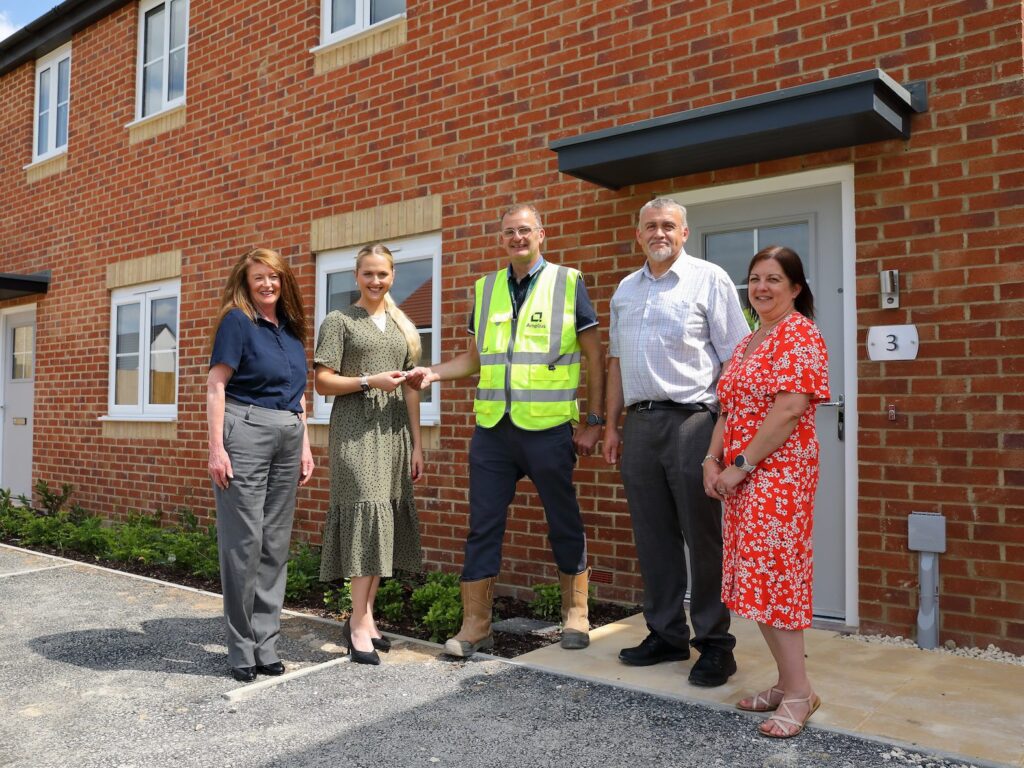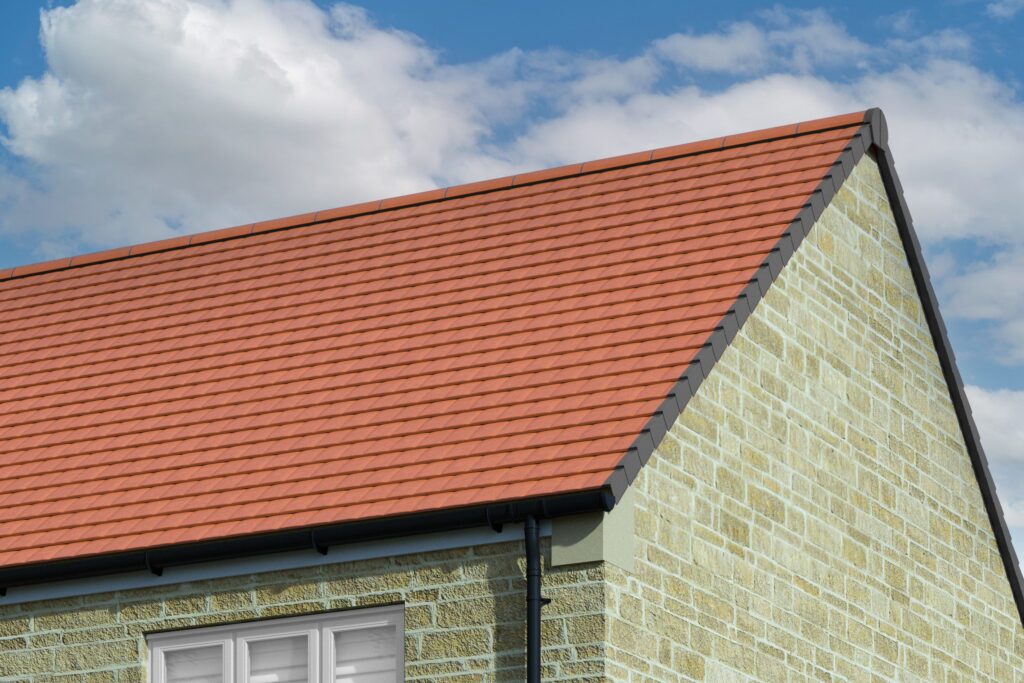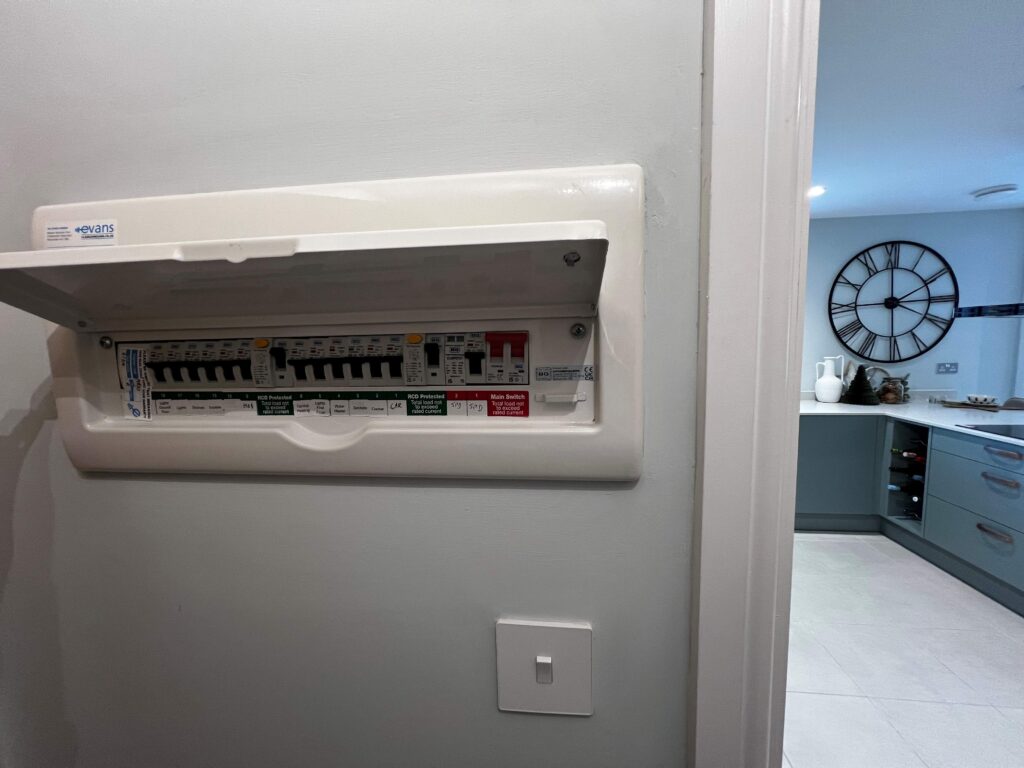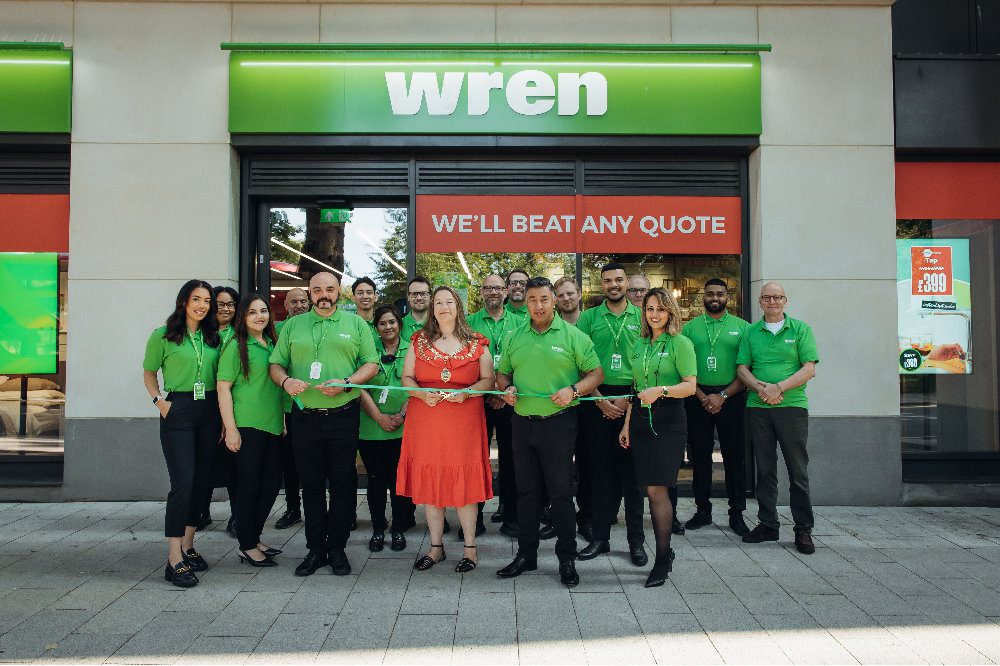Showhome Editor Joseph Clarke investigates the evolving realm of sustainable housing financing, spotlighting government incentives, banking innovations, and the impact investment trend
When it comes to modern construction, the urgency for sustainable and eco-friendly housing developments is greater than ever. As the world confronts pressing environmental challenges, the housing industry is swiftly embracing sustainable practices. However, financing such projects presents both promising opportunities and distinctive challenges. Fortunately, various avenues exist, including government initiatives, financial aid from banks, green bonds, and impact investing, all serving as tools to encourage housebuilders and housing developers to build greener.
Government Incentives
Government incentives play a pivotal role in catalysing sustainable housing initiatives, providing housebuilders and housing developers with crucial financial support and incentives to embrace eco-friendly building practices.
- The Levelling Up Home Building Fund
In the quest to address the pressing need for more homes and vibrant communities across England, the Levelling Up Home Building Fund emerged in 2022 as a beacon of support for small and medium-sized enterprises (SMEs) and forward-thinking developers and housebuilders. With a focus on accelerating the pace of home construction while fostering innovation in design and delivery, this fund opens doors to a wealth of opportunities for those driving change in the housing sector.
At its core, the Levelling Up Home Building Fund aims to empower SMEs and innovative stakeholders to embark on ambitious projects that not only increase housing stock but also shape communities for the better. Encouraging a culture of innovation, the Fund seeks to support initiatives that push boundaries in home construction and delivery methods.
The Fund stands ready to back a diverse range of projects that embody innovation and excellence. From serviced plots catering to custom and self-builders to off-site manufacturing ventures revolutionizing construction processes, the Fund welcomes proposals that redefine the status quo. Moreover, initiatives such as community-led housing projects and collaborative efforts among small firms to tackle larger sites exemplify the Fund’s commitment to fostering inclusive and sustainable development practices.
To access finance from the Levelling Up Home Building Fund, projects must demonstrate financial viability and a clear pathway to delivering tangible results. Eligible applicants include UK-registered corporate entities or limited liability partnerships (LLPs) planning to develop five or more homes on a site in England. With a focus on expediting progress, the Fund prioritises projects where financing plays a pivotal role in overcoming obstacles or accelerating development timelines.
Leveraging appropriate security, the Fund offers financing starting from £250,000, with flexibility to consider smaller loans for groundbreaking housing solutions. Typical loan terms span up to five years, with transparent and commercially competitive variable interest rates. Importantly, the Fund encourages the recycling of sales income from homes sold to minimize loan requests, demonstrating a commitment to sustainable financial practices.
In addition to providing loan finance, the Levelling Up Home Building Fund actively seeks partnerships to broaden its impact and reach. Collaborations with entities like the Housing Growth Partnership and Barclays illustrate a concerted effort to mobilise resources and expertise towards shared objectives. These partnerships not only diversify the range of financial support available but also facilitate knowledge exchange and collaboration within the industry.
Keepmoat’s Group Development Director Tim Wray shared his thoughts on the initiative, stating that “Funds like the LUHBF are a great opportunity to try to increase capacity (number and size of homebuilders) in the sector to build more new homes to get closer to the annual housing targets, while recognising that smaller builders or new entrants need additional support.”
- Brownfield Land Release Funds
In addition to the Home Building Fund, the Department for Levelling Up, Housing and Communities also announced its groundbreaking initiative to regenerate brownfield land across the UK. With up to £80 million earmarked for the transformation of neglected urban areas into vibrant, eco-friendly communities, this initiative marks a significant step towards achieving the government’s long-term housing goals.
Under the Brownfield Land Release Fund 2, local councils across England are invited to bid for funding to unlock the potential of brownfield sites for residential development. This funding injection is set to pave the way for over 8,000 new homes by March 2028, providing a much-needed boost to housing supply while revitalising underutilised land.
In a press release issued by the Department at the end of last year, Minister for Housing, Lee Rowley, emphasised the pivotal role of brownfield land in realising the government’s vision for sustainable housing. By repurposing unloved sites, the initiative aims to create thriving new communities while preserving precious green spaces—an imperative in the fight against climate change.
“This fund will transform unloved and unused brownfield sites into thriving new communities, helping more young families onto the property ladder and creating thousands of jobs,” stated Minister Rowley. “This is a game-changer for councils, and I strongly encourage them to apply and reap the benefits in their local areas.”
The funding announcement came as part of the government’s broader commitment to prioritising brownfield land for new homes, aligning with its manifesto pledge to deliver 1 million homes over the course of this Parliament. As Minister Rowley pointed out, this initiative forms part of a £10 billion investment over the Parliament period, aimed at boosting housing supply and driving economic growth.
Cabinet Officer Minister Alex Burghart echoed these sentiments, highlighting the transformative potential of the funding in unlocking redevelopment opportunities and stimulating local economies. “It’s fantastic news for business, and even better news for local people who will now see new family homes in their communities,” said Minister Burghart.
The initiative has garnered support from various quarters, with the Local Government Association (LGA) lauding its potential to address local housing needs and support placemaking and regeneration ambitions. Shaun Davies, Chair of the LGA, emphasised the importance of capital grants in bringing surplus council-owned sites forward for housing, underscoring the positive impact of the initiative on communities nationwide.
Tim Wray concluded: “This fund is essential to support local councils address the complexity and consequential cost of bringing brownfield land back to life. The technical challenges, including the level of contamination, stabilisation, earth works etc mean that brownfield land is often unviable to develop, without some kind of financial support. This particular fund, accessible to local authorities, will help many of them realise the transformation of brownfield land into thriving, sustainable communities.”
- The Renewable Heat Incentive (RHI)
Initiatives like the Renewable Heat Incentive (RHI) further bolster the business case for sustainable housing development by providing financial incentives to encourage the adoption of renewable heat technologies. This program incentivises the installation of technologies such as solar thermal panels, heat pumps, and biomass boilers, offering developers a financial reward for transitioning away from traditional, fossil fuel-based heating systems. By leveraging the RHI, housebuilders and developers can not only reduce the carbon footprint of their projects but also attract environmentally conscious buyers who value energy-efficient, eco-friendly homes.
Beyond direct financial incentives, government policies and regulations aimed at promoting sustainability in the housing sector can also create market opportunities for developers. For example, building codes and standards that mandate energy efficiency requirements or carbon emissions targets incentivise developers to prioritise sustainable design and construction practices. By proactively embracing these standards, developers can future-proof their projects against evolving regulatory requirements while simultaneously meeting the growing demand for environmentally responsible housing options.
In essence, government incentives serve as a catalyst for sustainable housing development, providing housebuilders and developers with the financial resources and regulatory support necessary to embrace eco-friendly building practices. By capitalising on initiatives such as the Green Homes Grant scheme and the Renewable Heat Incentive, developers can not only reduce their environmental impact but also enhance the marketability and long-term value of their projects. As sustainability continues to gain prominence in the housing market, leveraging government incentives represents a strategic opportunity for developers to differentiate their offerings, attract discerning buyers, and contribute to a more sustainable built environment.
“This is a great way to encourage homes owners or self-builders to adopt a low carbon heating solution for their homes. Considering the majority of this country’s housing stock is aging, providing an incentive to heat these homes with renewable, more sustainable heating options is a positive. However, the biggest issue we have with the age of the housing stock is that it is very thermally inefficient, i.e. very poorly insulated, requiring significant energy to heat them. Increasing the level of insultation and therefore thermal efficiency of the UKs housing stock would be a better long-term focus for the Government.” Concluded Tim Wray.
Financial aid from banks
Banks have long been go-to sources of financing for housebuilders and housing developers, offering tailored solutions to meet their diverse needs. In recent years, financial institutions have stepped up their efforts to support sustainability in the housing sector, introducing innovative initiatives like the Lloyds Banking Group’s Sustainability Finance Framework.
This framework, unveiled in 2022, exemplifies the commitment of banks to expand the availability and affordability of sustainable housing by providing specialised financing options. Let’s explore how banks like Lloyds Banking Group are playing a pivotal role in enabling the transition towards greener and more sustainable housing developments.
Lloyds Banking Group’s Sustainability Finance Framework outlines how the Group aids housebuilders in securing finance for sustainable homes through one of three existing propositions:
- The Clean Growth Financing Initiative (CGFI), which offers discounted financing for sustainability projects tailored to smaller and medium-sized housebuilders.
- Sustainable Development Loans (SDLs), providing discounted financing for sustainability projects within the housebuilding sector, catering to larger clients.
- Sustainability-Linked Loans (SLLs), available for larger customers, incentivising the borrower’s achievement of ambitious, predetermined sustainability performance objectives.
Moreover, the framework incorporates newly established sustainability standards for new build homes in the UK, developed in collaboration with NextGeneration.
In a press release issued by the bank, David Cleary, Managing Director, Housing, Lloyds Banking Group, emphasised, “Our ambition at Lloyds Banking Group is to work with housebuilders to help meet these challenges and contribute towards the UK’s Net Zero goal.”
Shaun Walden, Head of Sustainable Finance and Climate Change, DNV UK, commended Lloyds Banking Group for publishing this comprehensive Sustainability Finance Framework, noting its significance as one of the first sector-based financing frameworks issued by a financial institution. Walden highlighted the framework’s value to the growing ESG community and anticipates further advancements in this domain by Lloyds.
Impact Investing
Impact investing, characterised by its dual focus on generating positive social and environmental outcomes alongside financial returns, presents an enticing opportunity for housebuilders and housing developers committed to sustainability. This approach not only addresses pressing societal and environmental challenges but also aligns closely with the overarching goals of sustainable housing projects.
The growing interest in impact investing reflects a broader shift in investor preferences towards funding initiatives that prioritise energy efficiency, carbon neutrality, and community well-being. As climate change concerns intensify and communities seek resilient, environmentally conscious housing solutions, there’s a clear market demand for innovative approaches to sustainable development.
By engaging with impact investment networks, housebuilders can access a pool of patient capital and specialised expertise specifically tailored to support sustainable development initiatives. These networks often include socially conscious investors, philanthropic organisations, and venture capital firms with a vested interest in driving positive change. Leveraging these resources not only provides financial support but also opens doors to valuable partnerships and collaborations, enhancing the viability and impact of sustainable housing projects.
Furthermore, aligning with impact investment principles can enhance the overall credibility and appeal of housing developments, attracting environmentally conscious homebuyers and tenants. This, in turn, can contribute to long-term financial stability and market competitiveness for housebuilders and developers.
Final considerations
The pursuit of sustainable housing development in the UK is not only a response to urgent environmental challenges but also an opportunity for innovation and progress within the housing industry. Through initiatives like the Levelling Up Home Building Fund and the Brownfield Land Release Fund 2, the government demonstrates its commitment to supporting sustainable practices and fostering vibrant communities. Additionally, financial institutions like Lloyds Banking Group are stepping up to provide tailored financing solutions, while impact investing offers a pathway to align financial goals with environmental and social impact.
Navigating these financing options requires diligence, partnership building, and a track record of success, but the potential benefits for both developers and the environment are substantial. By embracing sustainable development principles and leveraging available resources, stakeholders can contribute to a greener, more resilient future while meeting the growing demand for eco-friendly housing options in the UK.
Read more news and exclusive features in our latest issue here.
Never miss a story… Follow us on:
Showhome
@Your_Show_Home
@Showhomemag
Media Contact
Joseph Clarke
Editor, Showhome
Tel: +44 (0) 1622 823 920
Email: [email protected]











